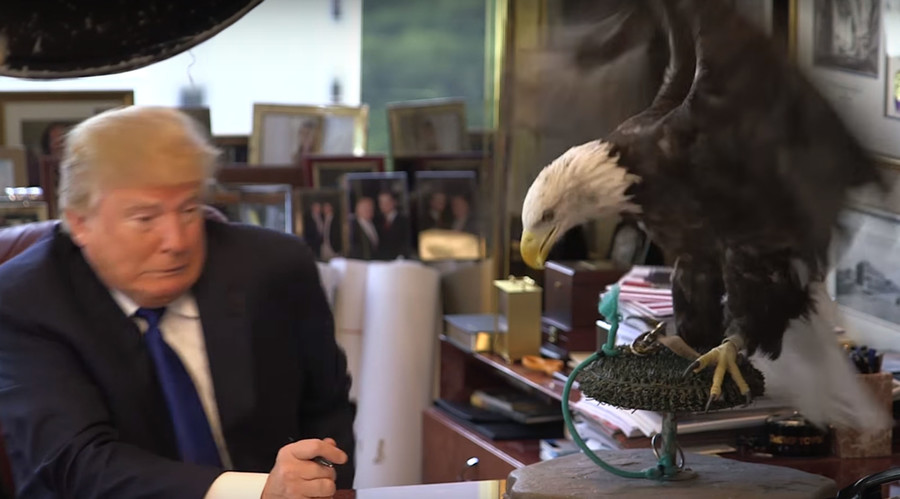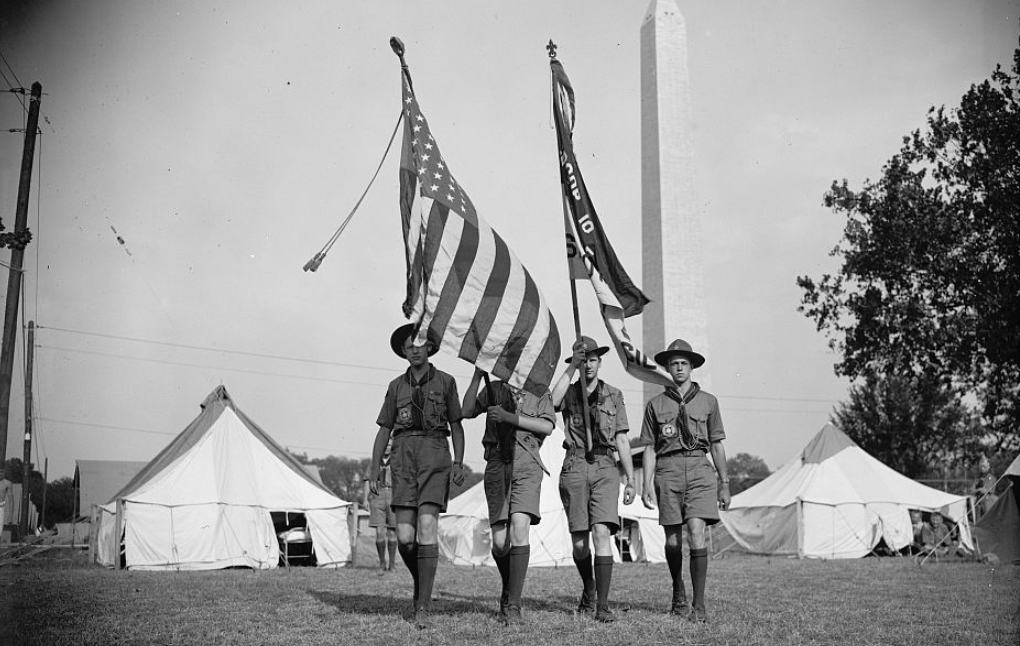It is now impossible to ignore the facts. We live with a corrupt and incompetent and highly dangerous monster who is causing great and unfathomable harm to this country, a dark Lovecraftian creature who has not made this country “great again,” but who has, in fact, made us the laughing stock of the world. This is a rapacious tyrant who openly ridicules the weak and the infirm, sustaining a callous and anti-intellectual streak that not even Richard Hofstadter could have foreseen originating within the Executive Branch. Only 39% of Americans approve of keeping this traitorous train wreck of a leader in office, and one ponders exactly what sterling qualities this minority sees within such a walking piece of offal. Is there some virtue in believing in a bedraggled oaf who cannot sustain a single thought for longer than twenty seconds? Or who cannot read any vital memo longer than a page? Or who openly invites white supremacists and hatemongers into his Cabinet?
But for most Americans, Donald Trump remains the rightly despised cancer, a disgusting fecal morsel that you can never seem to flush down the toilet, a tenth-rate Napoleon who openly resists any reasonable probing into his wanton business dealings and his possible collusion with Russia. He is an illiterate and indolent tax dodger incapable of exercising his mind or his body, yet he amazingly wants you to osculate his liver-spotted and hateful backside. He is surely one of the most oversensitive and graceless world leaders in human history. And now with his repulsively misogynist tweets to Mika Brzezinski, it is safe to say that Donald Trump is an unhinged megalomaniac incapable of practicing the basic duties of dignity that the office requires and who must now be taken out by impeachment. If our two houses lack the courage or the effrontery to do this, then we must lead a campaign to replace any Senator or Representative standing in the way of preserving American’s future in next year’s midterm elections.
This disheveled animal has proven himself unfit to be called President of the United States, much less President of the Alfalfa Club or the self-appointed bipolar king of a psychiatric ward, with his lack of discretion with state secrets, his disastrous meetings with other world leaders, and his openly racist travel ban on innocent Americans. This repulsive beast is not a man, but a mentally unbalanced rapist whose true hues blind the public whenever he is even vaguely challenged. He is a savage and abhorrent mongrel who has caused reading the headlines to become an act of embracing shellshock and chronic fatigue. He is a bully whose pathetic cries for attention, which range from the fake Time Magazine covers that have adorned his clubs and his chronic insistence for sycophantic obeisance, must now be pissed on, ridiculed, openly mocked, and resisted with every principled fiber that this country still has left. The inevitable demise of this feral manboy, who sustains a remarkable vulgarity at seventy-one years that outshines even someone suffering with Tourette’s syndrome, will surely be cause to pop open the champagne. I don’t think it’s unreasonable to attend Trump’s ineluctable funeral just to kick Trump’s mangy and bloated corpse further into the dirt to ensure that the evil bastard is indeed dead and that he will not harm the country for another second.
So what do we do to stop him? It begins with the amoral Jack Dorsey, the Twitter CEO who is surely one of the most spineless profiteers in recent American history and the man who created this mess by failing to curtail this despicable demagogue’s rise through trolling and harassment during last year’s election, displaying some stones for once in his sad, passive, hell-ravaging life. Dorsey must perform his patriotic duty by suspending Our Fearless Leader’s account for regularly violating Twitter’s policy against harassment and abuse. Dorsey banned the hateful Milo Yiannopoulos and has suspended many alt-right accounts. Since presidential precedent has been so thoroughly eroded, this is a reasonable measure.
It continues with Republicans uniting with Democrats to reject this faux statesman’s stature, as Senators Lindsey Graham and Ben Sasse did this morning, by demanding the largest binpartisan investigation imaginable, one that rivals Watergate and Iran-Contra in scope, given the many unanswered questions and Trump’s increasingly secretive affairs. If Republicans can vehemently demonstrate with their actions that they understand Trump is an aberration and potentially a bigger fraud than Rutherford Hayes was in the disputed 1876 election or even the hanging chads when Bush represented the comparatively saner interloper, then we might see some small restoration of representative democracy. All one needs to do is to regularly call their offices and remind these legislators that they will inevitably have to run for re-election, and to not stop doing this. This must be accompanied by active and regular protest.
But most importantly, America must stop calling Donald Trump its President of the United States until he has earned the right to that title. Thus far, Trump’s greatest achievement has involved uniting an increasing majority of Americans against him. He has accomplished nothing especially remarkable in policy or achievement, save the hard-won confirmation of Neil Gorsuch as Supreme Court Justice, our withdrawal from the Trans-Pacific Partnership and the Paris Climate Accord, and a series of internal firings that has rivaled Nixon in speed and scope. He has intimidated FBI directors, besmirched London’s first Muslim mayor, shared classified information where he should not have, demonstrated an inability to perform basic arithmetic in his proposed budget, and used Twitter to destroy our alliances. This is a man who neither comprehends nor cares for the way politics operates. Trump has had six months to establish a doctrine, but it essentially involves throwing a random dart into the Seven Circles of Hell and seeing what lands.
When a pestilent rodent invades your property, you don’t let it scuttle around for eternity. The time has come to call the exterminator on Donald Trump. This man is incompetent. He must not be respected. He must be resisted. He must be acknowledged as poisonous vermin eating the walls of this democratic republic. He must be impeached by any means necessary.




